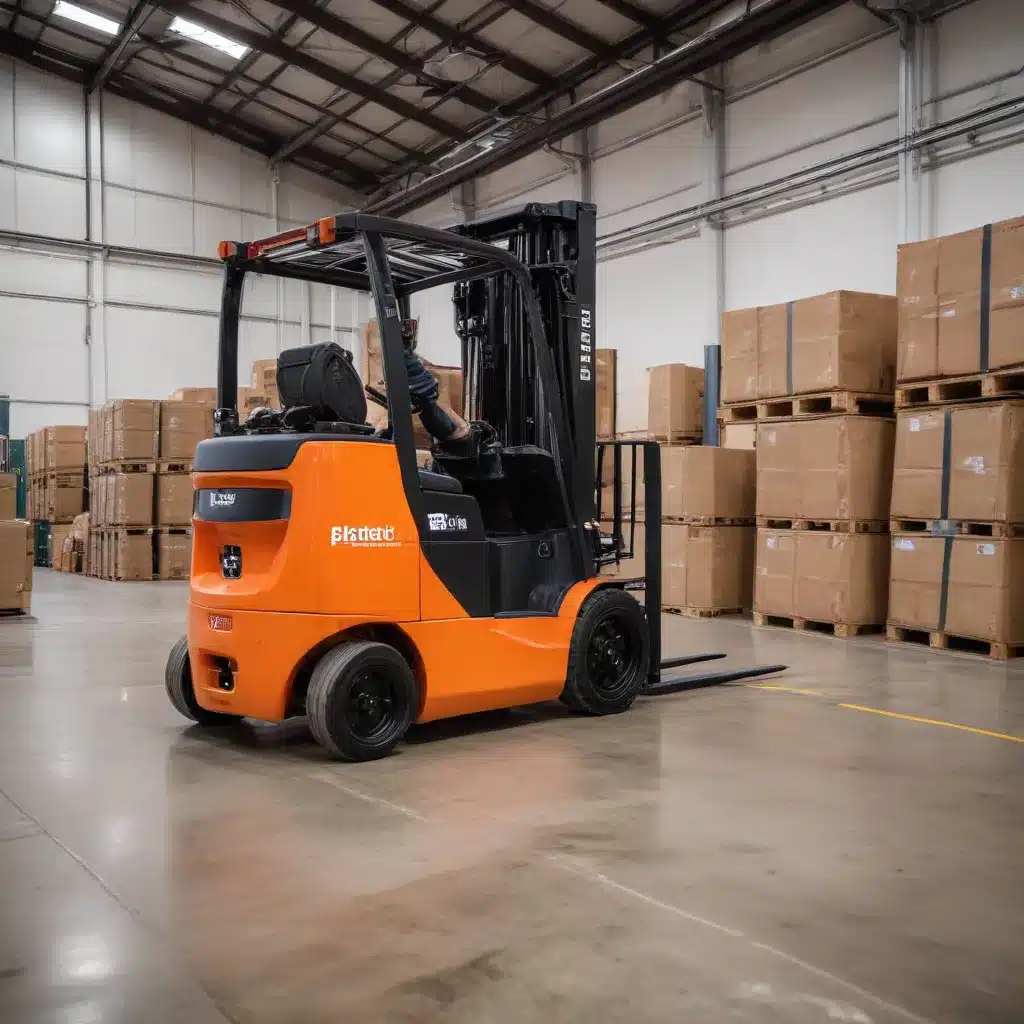
In the ever-evolving world of warehouse and logistics operations, the choice between electric and gas-powered forklifts has become a critical decision for businesses seeking to optimize productivity, reduce costs, and minimize their environmental impact. As an industry expert, I’m here to provide you with a comprehensive guide on navigating the electric vs. gas forklift landscape, empowering you to make informed decisions that align with your operational needs.
Understanding the Fuel Efficiency Equation
When it comes to forklift fuel efficiency, there are several factors to consider, including initial costs, ongoing operational expenses, and environmental impact. Both electric and gas-powered forklifts offer unique advantages, and the optimal choice will depend on your specific warehouse or logistics requirements.
Electric Forklifts: The Eco-Friendly Choice
Electric forklifts have gained significant traction in recent years, thanks to their eco-friendly and cost-effective nature. These zero-emission machines boast several benefits that make them an attractive option for modern warehouse operations:
Cost Savings: Electric forklifts have lower fuel and maintenance costs compared to their internal combustion counterparts. With no need for constant refueling and fewer moving parts, the long-term cost savings can be substantial.
Sustainability: By eliminating harmful exhaust emissions, electric forklifts contribute to a cleaner and healthier work environment, aligning with growing sustainability initiatives. This can enhance your company’s reputation and appeal to environmentally-conscious customers.
Safety Advantages: Electric forklifts are quieter, reducing noise pollution and improving communication and situational awareness on the warehouse floor. They also feature advanced safety features, such as automatic braking and anti-roll-back systems, further enhancing the safety of your operations.
Improved Efficiency: With precise acceleration, braking, and maneuverability, electric forklifts excel at navigating tight spaces and maintaining productivity. The longer run times and regenerative braking capabilities also help maximize efficiency.
Government Incentives: Many governments and municipalities offer incentives, such as tax credits or rebates, for businesses that adopt electric forklifts, making the transition more financially viable.
Gas-Powered Forklifts: The Versatile Option
While electric forklifts have gained significant ground, gas-powered forklifts continue to play a crucial role in the industry, offering their own set of advantages:
Availability and Infrastructure: Gas-powered forklifts, particularly those running on propane (LPG), benefit from a well-established infrastructure and widespread availability, making them a convenient choice for many businesses.
Cost-Effectiveness: Depending on regional fuel prices and usage patterns, gas-powered forklifts, especially those using natural gas (CNG), can be a more cost-effective option compared to electric models.
Versatility: Gas-powered forklifts can operate both indoors and outdoors, making them suitable for a wide range of warehouse and logistics applications. They are also less affected by wet or dry conditions, ensuring reliable performance.
Power and Performance: Gas-powered forklifts provide consistent power and performance, often outmatching electric models in handling heavier loads and navigating inclines.
Conversion Potential: In some cases, existing forklifts can be converted to run on alternative fuels like natural gas or propane, providing a more cost-effective solution for upgrading your fleet.
Assessing the Fuel Efficiency Trade-Offs
When comparing the fuel efficiency of electric and gas-powered forklifts, it’s essential to consider the nuances and trade-offs involved:
Fuel Costs: While electric forklifts generally have lower fuel costs, the upfront investment in charging infrastructure and battery replacement can offset these savings. Gas-powered forklifts, on the other hand, may benefit from lower fuel prices in certain regions.
Emissions and Environmental Impact: Electric forklifts boast zero direct emissions, making them the clear winner in terms of environmental friendliness. However, the overall environmental impact of electric forklifts depends on the energy source used to generate the electricity powering them.
Maintenance and Downtime: Electric forklifts typically require less maintenance due to their simpler design, but the downtime required for recharging can impact productivity. Gas-powered forklifts may require more frequent maintenance, but their refueling process is generally quicker and more convenient.
Performance and Capabilities: While electric forklifts have made significant strides in terms of power and runtime, gas-powered models may still have an edge in handling heavier loads and navigating challenging terrain, especially in outdoor applications.
Optimizing Your Forklift Fleet
Regardless of your choice between electric or gas-powered forklifts, it’s crucial to optimize your fleet management strategies to maximize fuel efficiency and overall operational performance. Here are some best practices to consider:
-
Conduct a Thorough Cost Analysis: Carefully evaluate the total cost of ownership, including upfront costs, fuel expenses, maintenance, and any applicable incentives or rebates, to determine the most financially viable option for your business.
-
Implement Preventive Maintenance: Regularly maintain your forklifts, whether electric or gas-powered, to ensure optimal performance, extended lifespan, and improved fuel efficiency.
-
Leverage Telematics and Fleet Tracking: Utilize GPS tracking and telematics solutions to monitor your forklift fleet’s usage, identify areas of improvement, and make data-driven decisions to enhance efficiency.
-
Provide Operator Training: Ensure your forklift operators are well-trained in safe and efficient handling techniques, as proper operation can significantly impact fuel consumption and overall productivity.
-
Explore Retrofit and Conversion Options: Investigate the feasibility of converting your existing forklifts to alternative fuel sources, such as natural gas or propane, to leverage the benefits of these cleaner-burning fuels.
Navigating the Future of Forklift Fuel Efficiency
As the industry continues to evolve, the landscape of forklift fuel efficiency will undoubtedly undergo further advancements. Stay informed by regularly visiting Forklift Reviews for the latest insights, product reviews, and industry trends that can help you make the most informed decisions for your warehouse or logistics operations.
Remember, the choice between electric and gas-powered forklifts is not a one-size-fits-all solution. By carefully analyzing your specific operational requirements, cost considerations, and environmental objectives, you can develop a strategic forklift fleet that optimizes fuel efficiency, productivity, and sustainability for your business. With the right approach and expert guidance, you can navigate the electric vs. gas forklift landscape with confidence and unlock new levels of operational excellence.

